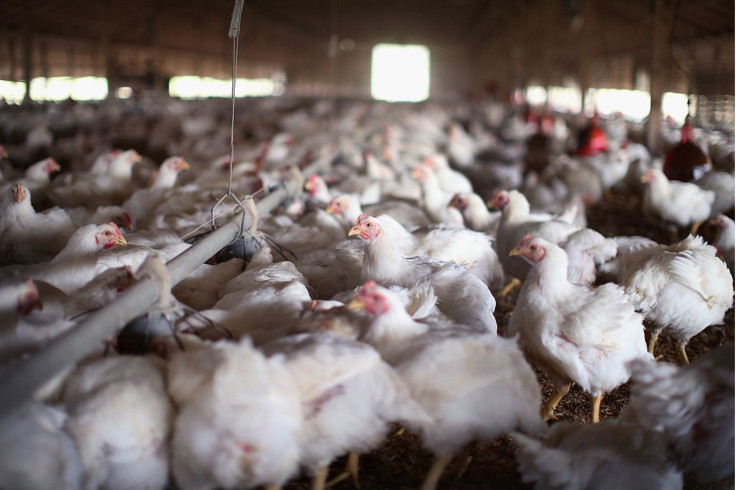
As the Trump administration ramps up deportation efforts in hopes of carrying out the largest "deportation operation in American history," one seemingly intended consequence is at the center of the policy: bird flu.
The administration's aggressive deportation tactics have led to farmworkers, particularly dairy and poultry workers, diverting from going into work, and merely even leaving their homes, for fears of being taken into custody and deported.
The trend is having ripple effects into the current bird flu epidemic, as farmworkers in the U.S. are some of the primary agents in preventing and detecting these cases, ABC News reports.
"People are very scared to go out, even go get groceries," said Rosa Yanez, an outreach worker at Strangers No Longer, a Detroit-based Catholic organization that supports immigrants and refugees in Michigan with legal and health problems, including the bird flu. "People are worried about losing their kids, or about their kids losing their parents."
"I used to tell people about the bird flu, and workers were happy to have that information," Yanez said. "But now people just want to know their rights."
The fears do not seem to be unfounded, as border patrol agents recently went on a three-day raid called "Operation Return to Sender" that "tore families apart and terrorized the community," a lawsuit filed by the American Civil Liberties Union on behalf of the United Farm Workers union in California alleges.
Experts say the change among farmworkers has been evident, particularly in California, the state hit hardest by the bird flu, since Jan. 7, the day after Congress certified President Donald Trump's election victory. That's when Border Patrol agents indiscriminately stopped about 200 Latino farmworkers and day laborers in California's Central Valley, according to local reports cited in the lawsuit.
In California, an estimated 880,000 mainly Latino farmworkers live, and dairies that employ immigrant labor produce nearly 80% of the U.S. milk supply, according to a 2014 survey.
"After Operation Return to Sender, dairy workers became even less willing to speak about the lack of protection on dairy farms and the lack of sick pay when they're infected— even anonymously," said Antonio De Loera-Brust, a spokesperson for the United Farm Workers.
Experts say the public health ramifications of farmworkers shrinking from view are potentially massive. They say that preventing people from getting bird flu and detecting cases, like farmworkers, are critical to warding off a bird flu pandemic. That's why the government has funded efforts to protect farmworkers and monitor them for signs of bird flu, like red eyes or flu-like symptoms.
"Every time a worker gets sick, you're rolling the die, so it's in everyone's interest to protect them," Antonio De Loera-Brust, a spokesperson for the United Farm Workers said. "The virus doesn't care what your immigration papers say."
An estimated 30 million birds have died or been killed due to bird flu in January and February. The outbreaks were cited as the major cause of price spikes of eggs in those months, hitting a record-high of $6.23 per dozen despite President Donald Trump's predictions, The Associated Press reports.
Egg prices hit $5.90 in February one month after setting a record at $4.95 per dozen, according to the U.S. Bureau of Labor Statistics. The farms that had fall outbreaks have been working to resume egg production after sanitizing their barns and raising new flocks, but chickens must be about six months old before they start laying eggs.
© 2025 Latin Times. All rights reserved. Do not reproduce without permission.








